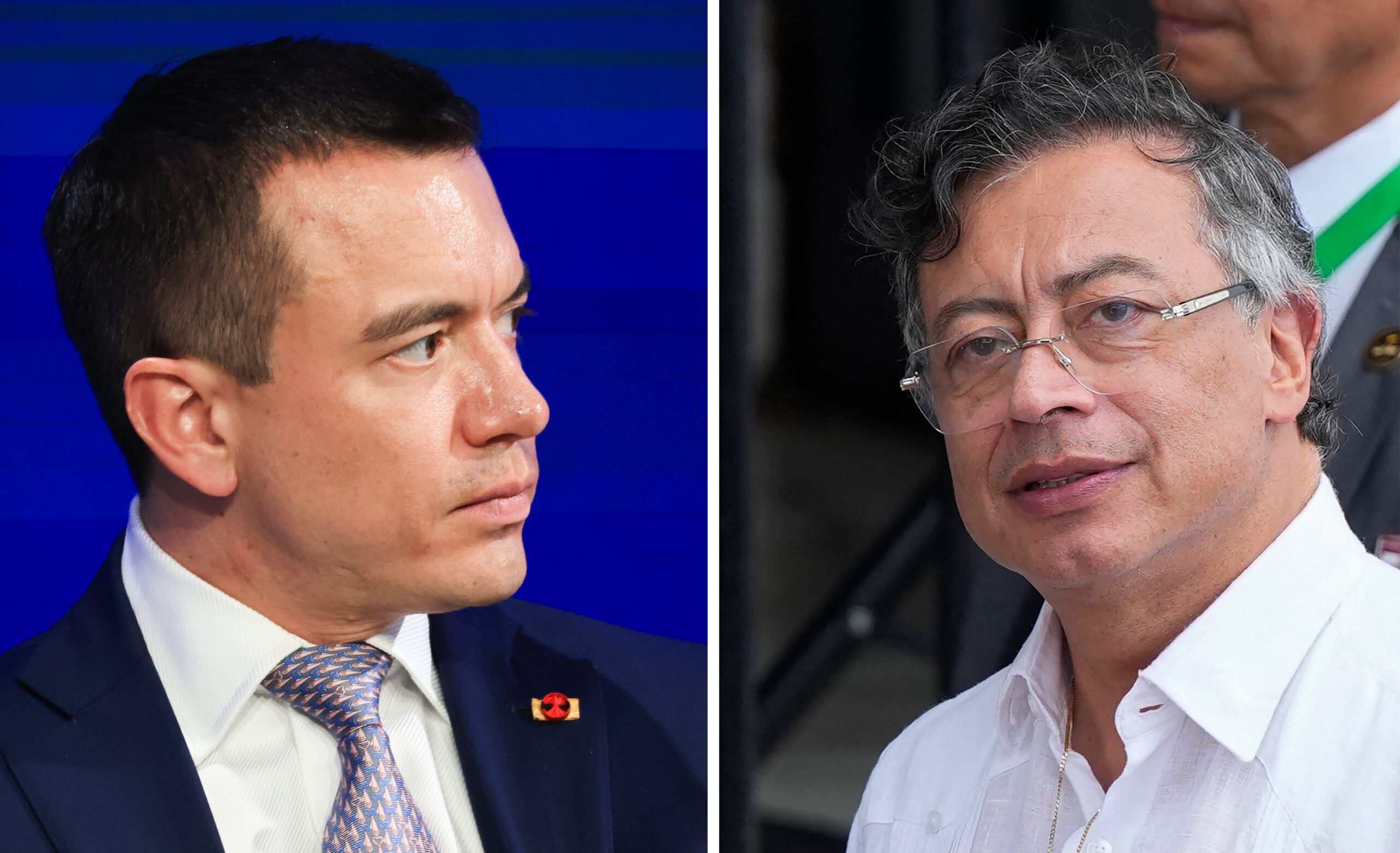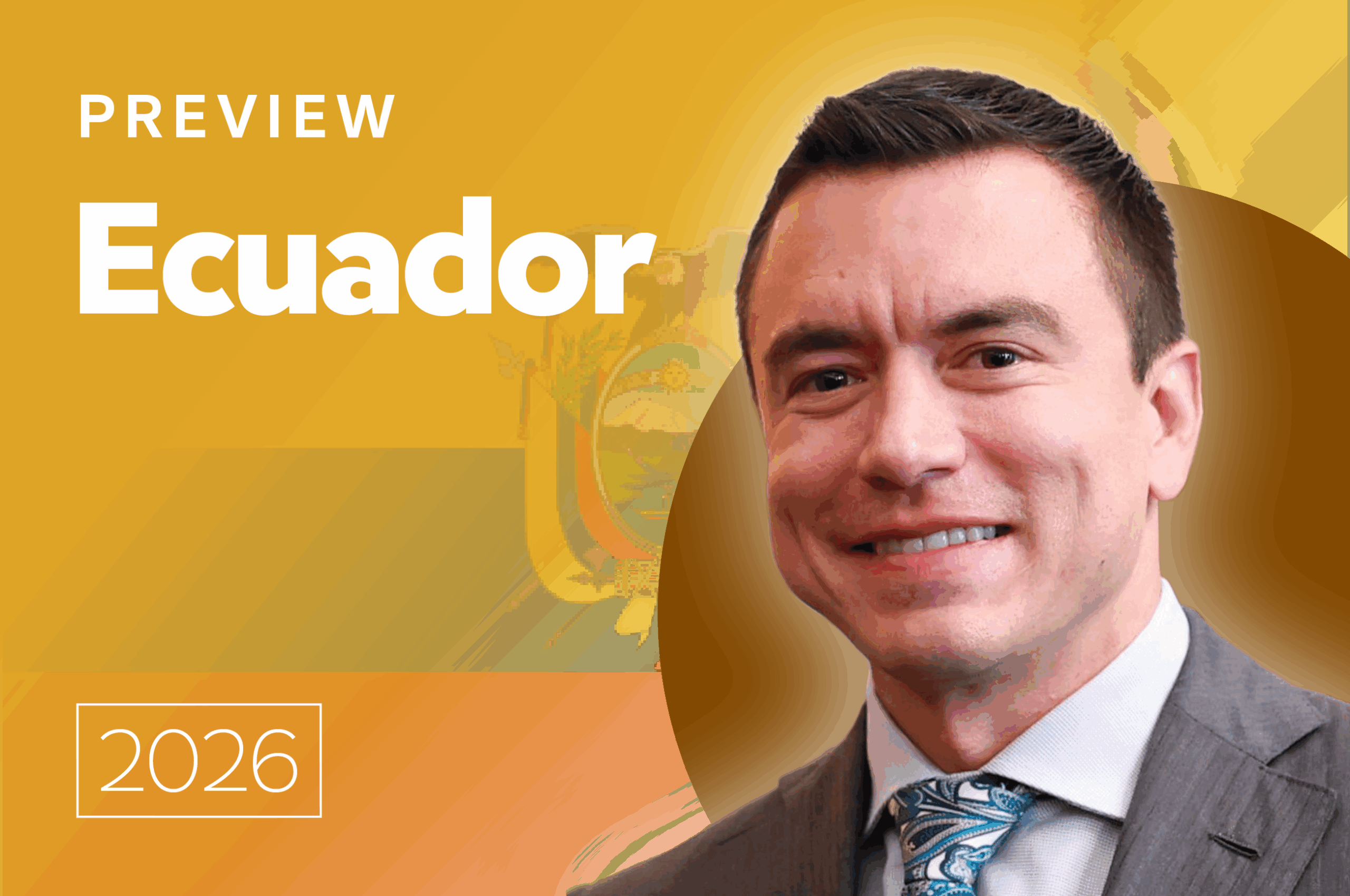Ecuador's Correa Takes on the Press
Ecuador's Correa Takes on the Press
An Ecuadoran court convicted a daily newspaper's directors of defamation July 20, sparking an international uproar from press freedom advocates and shining a light on Latin American libel laws.
For Ecuadoran President Rafael Correa, $40 million and three years in prison are not punishment enough for what he says is a malicious act of defamation. On July 20, Ecuadoran judge Juan Paredes convicted former Opinion Editor Emilio Palacio and three directors of national daily El Universo of libel, sentencing them to three years in prison and ordering them to pay an indemnity to Correa totaling $40 million. The president said he was not interested in the money, which he plans to donate to a fund to combat climate change. Nevertheless, he plans to appeal the decision in order to get the $80 million in damages he originally requested. The defendants, who say they don’t have enough money to pay the $40 million, also appealed. For the time being, both the jail sentences and the payments are suspended. With media advocates condemning Correa’s lawsuit, the El Universo case has put a spotlight on the strict libel laws that remain on the books in some Latin American countries.
The case centers around a column written by Emilio Palacio last year called “NO More Lies.” El Universo ran the piece following a police uprising in September 2010, in which the military rescued Correa from a police hospital in an operation where shots were fired. In the article, Palacio repeatedly referred to the democratically elected President Correa as a “dictator” and implied that Correa ordered the military to fire on the hospital. Correa denied he gave such an order and likened the column to an accusation that he had committed a crime against humanity. “This is tough. It hurts,” Correa said of Palacio and the directors of El Universo’s convictions. “But it’s necessary, because sooner or later this reign of terror of mass media had to end.” Correa says he offered to withdraw the lawsuit if the paper ran a correction, but the paper refused. Instead, El Universo offered to publish a statement from Correa, but he refused. Correa has filed another defamation suit for $10 million in damages against journalists Juan Carlos Calderón and Christian Zurita, authors of a book called Big Brother that accuses Correa’s brother Fabricio of corruption stemming from preferential access to state contracts.
Whether or not Palacio’s column was accurate, many press authorities say Ecuador’s laws governing libel are too strict and the case will lead to increased self-censorship. The Inter-American Commission on Human Rights issued a statement in April criticizing libel laws on Ecuador’s books known as “crimes of honor” that carry jail sentences and can be invoked by public figures. Diego Cornejo, the director of the Ecuadoran Association of Newspaper Editors told the BBC that the decision threatened to lead to a climate of self-censorship, saying that “journalists are working with less freedom and the information that gets to the public is of a lower quality.” The president of the Inter-American Press Association, Gonzalo Marroquín, called the court’s decision a “grave blow to the most essential principles of freedom of information.” Correa responded by telling Marroquín he would kick him out of the country for referring to Ecuador as a “dictatorship.” Marroquín denies using that term to describe Correa’s government.
The case is one of the largest in a series of libel suits in Latin America that highlight how laws governing free speech in some areas of the region remain out-of-step with hemispheric standards. In Venezuela, Oswaldo Alvarez Paz was convicted this month for the crime of “spreading false information” after saying in a television interview last year that Venezuela “facilitates the business of drug trafficking” and harbors Colombian and Spanish terrorists. In a similar but less well-known case, a Peruvian court convicted television reporter Andrade Chávez of criminal defamation on July 6 and sentenced to two years in prison. Chávez had interviewed a member of a local political party in the town of Chepén who said she had been threatened by public functionary Juan José Vásquez Romero. Chávez said he attempted to reach Vázquez for his version of the story, but was unable to, according to the Committee to Protect Journalists (CPJ).
Notwithstanding recent convictions, the recent trend in Latin America is for countries to abandon laws carrying jail sentences for libel and defamation, CPJ notes. In Argentina, the Congress did away with criminal defamation in November 2009. Courts in Costa Rica, Brazil, Colombia, and Chile have all overturned laws calling for harsh punishments for libel over the last two years.
Learn more:
- AS/COA will host a July 28 roundtable on press freedom in the Americas at the National Press Club in Washington.
- Read a statement from the Inter-American Press Association criticizing the decision in the libel case.
- See a statement from the Committee to Protect Journalists about the Correa’s case against El Universo.
- View Emilio Palacio’s letter of resignation from El Universo.
- Read the column that gave rise to the conflict, “No More Lies” (“NO a las mentiras.”)








